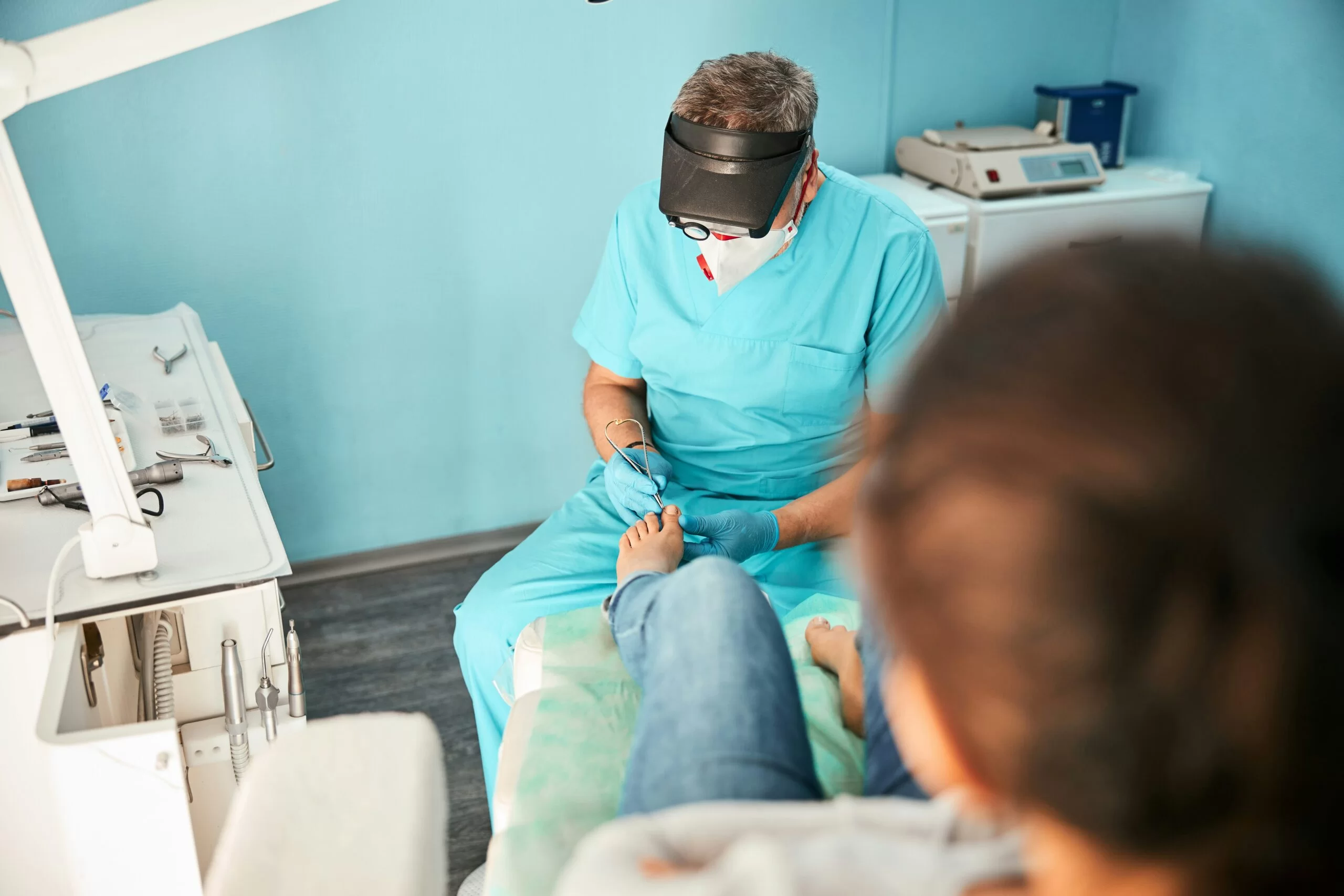
What to Expect at Your First Appointment for Peripheral Arterial Disease (PAD)
Every patient is unique, and no two cases of Peripheral Arterial Disease are exactly alike. That’s why your first visit with Dr. Warren Albrecht, vascular surgeon in Joplin, MO, is centered on understanding your individual health needs. PAD cannot be evaluated by simply entering numbers into a formula—there is no single risk calculator that applies to everyone. Instead, your treatment plan is carefully tailored based on a complete evaluation of your condition, medical history, and lifestyle to ensure you receive the most effective care possible.
What May Be Causing My Leg Pain?
While you are being evaluated for Peripheral Arterial Disease (PAD), our ultimate goal is to determine the exact cause of your leg pain and create a clear treatment plan. PAD is one possible factor, but several other conditions can contribute to leg discomfort.
Other possible causes of leg pain include:
- Spinal stenosis or nerve root compression
- Joint or spinal arthritis
- Chronic muscle compartment syndrome
- Venous disease
- Restless leg syndrome
- Metabolic conditions
What May Be Causing My Leg Wound?
Leg and lower extremity wounds can be complex and difficult to diagnose. At Warren Albrecht Vascular Surgery in Joplin, MO, we work closely with the wound care clinic to identify the underlying cause so proper treatment can be provided, giving your tissues the best chance to heal.
Possible causes of leg wounds besides arterial disease include:
- Venous disease
- Autoimmune disease
- Chronic infection
- Neuropathy
- Medication-related complications
- Small artery disease or metabolic conditions such as diabetes or smoking
- Cancer
Will the doctor ask about my smoking and tobacco use?
Yes. Tobacco use is the leading preventable cause of disease, disability, and death in the United States. Smoking and smokeless tobacco significantly increase the risk of atherosclerotic cardiovascular disease (ASCVD), stroke, and overall mortality. Even secondhand smoke contributes to nearly one-third of chronic heart disease deaths. Reducing cigarette use lowers risk slightly, but even low levels of smoking can still trigger serious cardiovascular events, such as acute heart attack.
(Journal of the American College of Cardiology, Vol. 74, No. 10, 2019)
Will the Doctor Order Blood Work?
We make every effort not to duplicate labs that have already been completed by your primary care provider. However, current lab work is important in assessing risk factors and guiding treatment for PAD and other vascular conditions.
Blood tests may include:
- Hemoglobin A1c – Abnormal if > 6.5% (used to screen for diabetes mellitus, which increases risk of atherosclerotic disease)
- Albumin level – Reflects nutrition and overall health
- Kidney function – eGFR and creatinine levels
- Cholesterol profile (hypercholesterolemia is a major risk factor):
- Total cholesterol: Abnormal if > 200 mg/dl
- LDL (“bad” cholesterol): Abnormal if > 160 mg/dl
- HDL (“good” cholesterol): Abnormal if < 40 mg/dl for men or < 50 mg/dl for women
- Triglycerides: Abnormal if > 150 mg/dl
Will My Blood Pressure Be Checked?
Yes. High blood pressure (hypertension) is a major risk factor for atherosclerotic cardiovascular disease.
- Stage 1 hypertension: 130–139 / 80–89 mmHg
- Stage 2 hypertension: ≥ 140 / ≥ 90 mmHg
Will my weight be checked?
Yes. Obesity (defined as a Body Mass Index, or BMI, greater than 30) is another risk factor for heart disease. While your exact weight may not be as critical in determining PAD risk, calculating your BMI provides important insight into overall cardiovascular health.

Why Is an Ultrasound Done on My Leg?
An ultrasound is one of the most important first steps in evaluating blood flow in your legs. Similar to how blood pressure is measured in your arms to assess overall circulation, we compare leg pressures to arm pressures to see if there is reduced flow to the lower extremities. Ultrasound imaging also allows us to directly observe the arteries in the legs and detect areas of narrowing or poor circulation.
This test can help determine:
- The severity of peripheral arterial disease (PAD)
- Whether additional testing is needed
- If another condition could be contributing to your symptoms
Without an ultrasound, the vascular surgeon would essentially be working “blind,” without critical insight into the cause of your leg discomfort.
What Other Tests May Be Needed?
In addition to ultrasound, other imaging studies may be ordered to provide a more detailed view of your arteries:
- CT Angiogram (CAT scan): Creates a roadmap of the arteries to confirm ultrasound findings.
- MRI Angiogram: Offers detailed images for patients who cannot undergo a CT scan.
- Angiogram: A minimally invasive procedure where contrast dye is injected directly into the arteries. This not only maps out blockages but may also allow treatment, such as angioplasty or stenting, to be performed during the same procedure.
Will the Vascular Surgeon Prescribe Medication?
Yes, medication is often part of PAD treatment, though surgery is not always required. Depending on your specific needs, the following may be prescribed or recommended:
- Anti-platelet therapy (e.g., aspirin, Plavix) to help prevent clotting
- Blood pressure, diabetes, or cholesterol medications – these may be managed by your primary care physician
- Blood thinners (anticoagulants) such as Coumadin, warfarin, or heparin-type medications like Lovenox, if indicated
All medication choices and reasoning will be explained during your consultation.
Is Surgery Always Used to Treat Arterial Disease?
No. Treatment for peripheral arterial disease is highly individualized, as each person’s artery narrowing or blockages are unique—almost like a fingerprint.
Options may include:
- Lifestyle changes and medication management
- Endovascular procedures (minimally invasive techniques such as angioplasty or stenting performed inside the artery)
- Open vascular surgery – still considered the “gold standard” in many cases, though endovascular procedures may be equally effective or better for certain patients
At Warren Albrecht Vascular Surgery in Joplin, MO, each treatment plan is tailored to provide the safest and most effective approach to restoring healthy blood flow.
Your Evaluation and Treatment Options
During your appointment, Dr. Warren Albrecht will carefully evaluate your condition and then explain the best treatment options available. Every plan is personalized—Dr. Albrecht will discuss each approach in detail so you can make an informed decision together.
Understanding Atherosclerotic Cardiovascular Disease (ASCVD)
Atherosclerotic cardiovascular disease (ASCVD) is the leading cause of illness and death worldwide. In the United States, it remains the number one cause of death across most racial and ethnic groups. Beyond its impact on health, ASCVD carries an economic burden of more than $200 billion annually due to healthcare costs, medications, and lost productivity.

